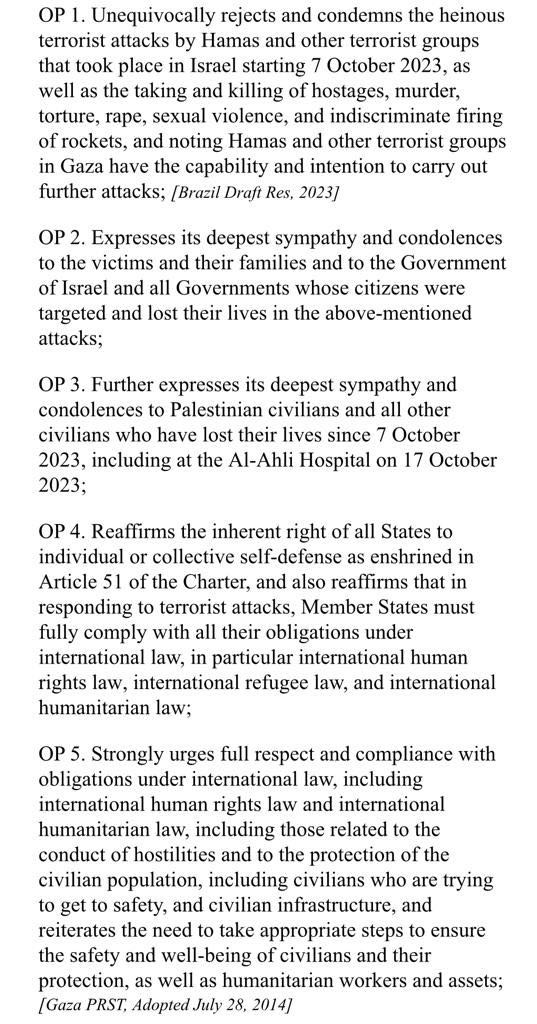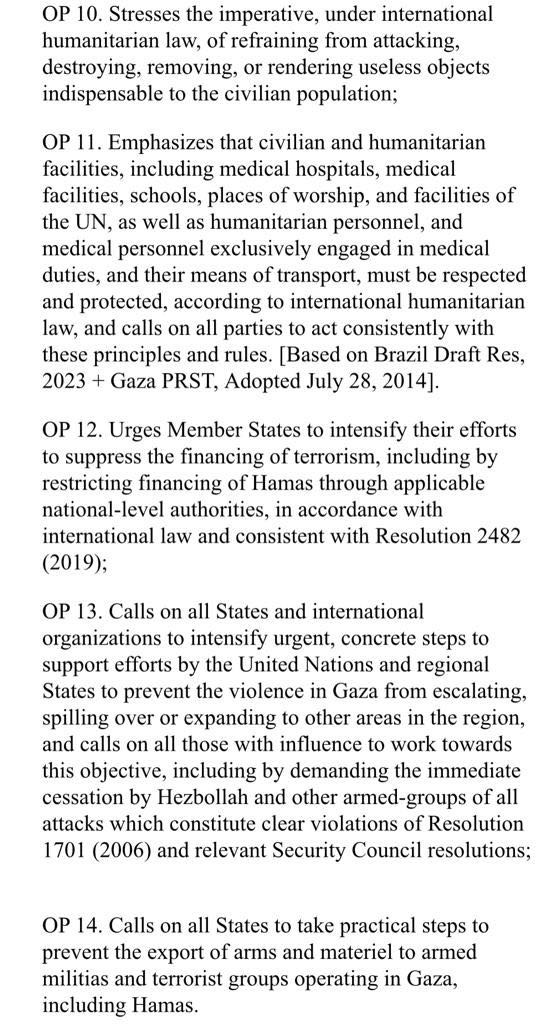Bipolar Diplomacy: Unmasking U.S. Priorities in the Gaza Conflict
- Ahmed Fathi

- Oct 22, 2023
- 2 min read

By: Ahmed Fathi
UNHQ: The recent developments at the United Nations Security Council (UNSC) have highlighted a troubling double standard in the U.S. approach to the Israel-Gaza conflict. The U.S. Mission to the UN's draft resolution focuses primarily on Israel's right to self-defense, condemns Hamas, and singles out Iran for arming militias and terrorist groups, without acknowledging the suffering of innocent Palestinian lives. The draft also lacks language calling for a ceasefire and humanitarian pauses, raising questions about its priorities.
While the draft does call for the protection of schools, hospitals, and places of worship, as well as the provision of essential goods to Gaza, its main emphasis on Israel's self-defense overshadows these humanitarian aspects. UNSC members have offered varying degrees of support for the ceasefire and international humanitarian law (IHL) language, but some have raised concerns about the timing of the resolution, which may not allow for adequate discussion and negotiations.
One notable change in the draft is the softening of language concerning Iran, shifting from singling out Iran to calling on all states to prevent the export of arms and materiel to armed militias and terrorist groups in Gaza, including Hamas. The UAE Mission to the UN has criticized the draft for its limited acknowledgment of aid reaching Gaza, which can create a false impression of freely flowing humanitarian assistance.
The UAE rightly points out that people in Gaza continue to lack basic necessities and are at risk of diseases like cholera. The draft's disproportionate focus on Hamas and lack of condemnation for Israel's violations of IHL in military operations are concerning. Furthermore, the draft's failure to adequately recognize the more than 4,000 Palestinian lives lost and the suffering endured by their families reflects poorly on the international community's commitment to justice and peace in the region.
The draft offers specific condolences to the victims of the October 7 attacks but provides only a general condolence to "all other civilians," highlighting the biased approach. In contrast, the UAE praises a resolution put forward by Brazil, which they describe as a well-crafted document that considered national positions while upholding international law principles.
The UAE also criticizes the U.S. draft for not addressing Israel's North Gaza evacuation order, which many UNSC members consider a violation of IHL. In conclusion, the U.S. draft resolution underscores the need for a more balanced and impartial approach to the Israel-Gaza conflict. The international community must prioritize the protection of all civilians in the region and work towards a just and lasting peace while upholding the principles of international law and human rights.




